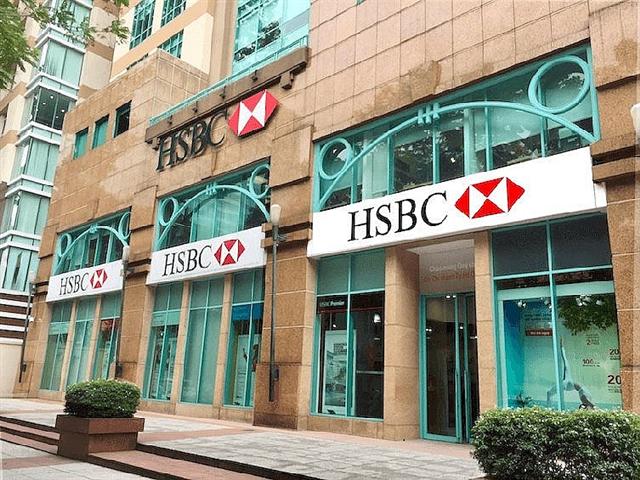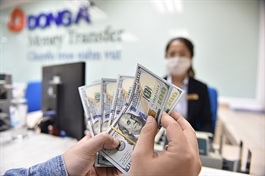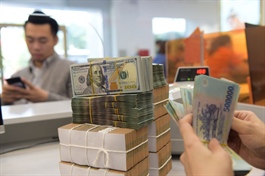Global banking leaders targeting growth in SE Asia
Global banking leaders targeting growth in SE Asia
International banks are proactively deploying more resources in Southeast Asia, especially in Vietnam, with the emerging regional economy representing high potential for them.

Global banking leaders targeting growth in SE Asia, illustration photo
|
HSBC will be naming a new head for its Singapore operation, along with its expansion plan in the region. Europe’s largest lender is preparing to announce the outcome of a strategic review next week, alongside its full-year results.
According to Bloomberg, HSBC is seeking to gain a bigger slice in Southeast Asia where it has been struggling to compete with dominant players such as DBS Group Holdings and Standard Chartered. “HSBC wants to further raise its capability and presence in South Asia, and Singapore is central to this drive and ambition,” said Peter Wong, HSBC’s top executive in Asia.
Earlier in February, HSBC had set up a new private banking business in Thailand, the Asia-focused lender’s second onshore expansion in Southeast Asia, due to the country’s increasing rich citizenship status. Last year it merged its businesses to create a new unit that manages more than $1.4 trillion in client assets, with half coming from Asia.
Last year, HSBC Vietnam became the first ever foreign commercial bank to issue bonds in Vietnam, releasing six million in August.
UOB – another major lender from Singapore – completed acquisition of Vietnam Fund Management JSC in January, before changing its name to UOB Asset Management (UOBAM). According to UOBAM, Vietnam’s onshore mutual funds saw a compounded annual growth rate of more than 75 per cent in assets under management from 2016 to the end of September last year.
Thio Boon Kiat, CEO of UOBAM said, “The expertise of our new Vietnamese office will also complement our broader strategies in ASEAN equity and fixed income funds and investment mandates, enriching our product offering for investors and creating more collaboration opportunities with partners across Asia,” he noted.
Elsewhere, Japanese financial institutions are also eyeing the Southeast Asian market. Last December, Gunma Bank, a regional bank based in Gunma Prefecture, opened a representative office in Ho Chi Minh City to meet growing borrower interest in Vietnam. The bank also plans to downgrade its operations in Hong Kong, citing a decline in demand.
Meanwhile, the Bank of Yokohama closed its representative office in London in October in conjunction with its branch opening in Singapore. Nikkei Asia Review stated that the moves follow the Japanese government’s call to manufacturers to build factories in Southeast Asia in a bid to cut overdependence on China.
On the same boat, Japanese megabank Sumitomo Mitsui Financial Group (SMFG) is allegedly planning to acquire an Asian lender, specifically in Vietnam, the Philippines, or India.
Bank of Tokyo-Mitsubishi UFJ (MUFG) failed in purchasing PT Bank Permata – a local lender in Indonesia – which was acquired by Bangkok Bank Pcl. Sumitomo Mitsui already owns PT Bank TPN in the Southeast Asian nation.
MUFG Bank Ltd., a wholly-owned banking unit of MUFG, has a 92.47 per cent stake in Indonesia’s PT Bank Danamon Indonesia Tbk, a 76.88 per cent interest in Thailand’s Bank of Ayudhya PCL, a 20 per cent stake in the Philippines’ Security Bank Corporation, and a 19.73 per cent ownership in VietinBank. The Japanese bank also has extensive branch networks in Asia-Pacific, the Americas, Europe, and the Middle East.
However, the prospects in Southeast Asia are not always attractive. Data from S&P Global Market Intelligence revealed that MUFG will likely continue to face higher credit risks than two other Japanese megabanks in the near term as the lender’s larger international operations leave it more exposed to loan defaults in economies hit hard by the pandemic.
MUFG, which extends more loans overseas than SMFG and Mizuho Financial Group Inc., reported the highest non-performing loan ratios and loan loss provisions among the trio for at least five consecutive quarters. Michael Makdad, analyst at investment research firm Morningstar, says Southeast Asia is the main reason for MUFG’s higher bad debt ratio. Among MUFG’s overseas operations, the subsidiary in Thailand seems to be posing more challenges than others, partly the impact of the pandemic and lack of foreign tourists, Makdad said.
























